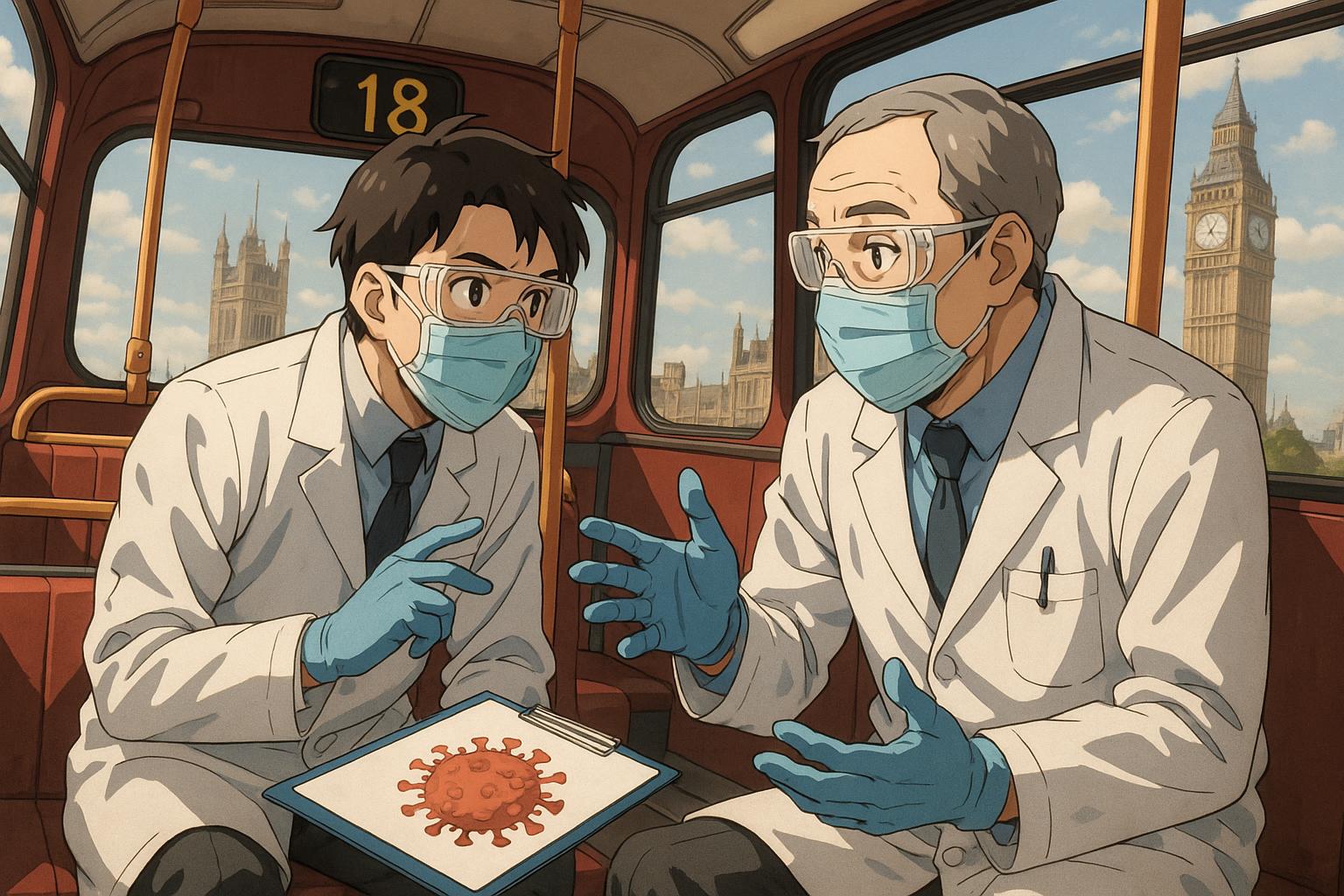What Britain has to offer to the world was starkly illuminated during the Covid crisis, an outbreak that fundamentally reshaped global health strategies. This transformation began with an unexpected encounter on a number 18 bus in London, where two epidemiologists, Martin Landray and Sir Jeremy Farrar, initiated a conversation that would significantly impact the trajectory of the pandemic response.
At the time of their meeting, life appeared largely unaffected by the emerging health threat; the bus was bustling, yet the gravity of SARS-CoV-2, which had originated in China, was evident as it began to overwhelm healthcare systems in northern Italy. Recognising the imminent threat, Landray and Farrar estimated that the virus would spread through the UK within two weeks, prompting the urgent necessity for clinical trials to identify effective treatments.
Normally, clinical trials demand a protracted period for patient recruitment and regulatory approvals. However, in this emergency, the scientists were acutely aware that rapid action was essential. Remarkably, within just nine days, they successfully enrolled their first patient. The trial expanded swiftly across 175 hospitals, eventually encompassing 10 per cent of all Covid hospitalisations in the UK.
As the trial progressed, the world was grappling with rampant infections, and the pressure to produce results was immense. Among the essential breakthroughs was the identification of dexamethasone, an affordable anti-inflammatory drug already readily available in pharmacies. Importantly, dexamethasone was the first treatment to demonstrate a definitive reduction in mortality rates among the most severely affected patients. With nearly 40,000 lives lost in the UK at that juncture, this discovery was a crucial beacon of hope. The drug was introduced into clinical use almost immediately following its announcement, saving countless lives globally and arguably accounting for up to a million saved worldwide.
The focus then shifted to vaccine development, spearheaded by Oxford University’s Professor Sarah Gilbert. Thanks to efficient collaboration and substantial funding from UK research councils, the Oxford-AstraZeneca vaccine was developed at an unprecedented pace. In 2020, UK authorities, typically known for their caution, surprised many by becoming the first country to authorise a Covid-19 vaccine tested in clinical trials. Such agility contrasted sharply with critiques directed at other aspects of the UK’s pandemic response, yet it underscored Britain's pivotal role in the global fight against the virus.
Despite these achievements, experts warn that significant gaps remain in the global health landscape. Both Landray and Gilbert emphasised that infectious diseases like the Marburg virus and Lassa fever still lack vaccines. Moreover, the struggle against antibiotic resistance persists, with projections suggesting that the mortality rate from drug-resistant infections could double by 2050. This grim outlook underscores the urgency for the global community to invest in the development of new vaccines, treatments, and antibiotics to prepare for future health crises.
Britain’s esteemed history in scientific innovation—boasting a lineage of groundbreaking figures from Edward Jenner to Alexander Fleming—has established it as a formidable hub for life sciences. Today, the UK is home to over 300,000 scientists, playing a crucial role in advancing medical research and technologies. However, to avert future pandemics and address emerging threats effectively, it is imperative for British science to reclaim its proactive stance in developing solutions—reinforcing the truth that an investment in health security benefits both the UK and the global community.
The recent pandemic has accentuated the interconnectedness of global health; thus, a sustained commitment to scientific progress in the UK could play a vital role in preparing for, and potentially preventing, the catastrophic impacts of another pandemic. As society emerges from the shadows of Covid-19, the lessons learned highlight an essential truth: urgent collaboration and innovation remain paramount in safeguarding public health for generations to come.
Reference Map:
- Paragraph 1 – [1], [3]
- Paragraph 2 – [1], [4]
- Paragraph 3 – [2], [5]
- Paragraph 4 – [6], [7]
- Paragraph 5 – [1], [5]
- Paragraph 6 – [1], [2]
Source: Noah Wire Services
